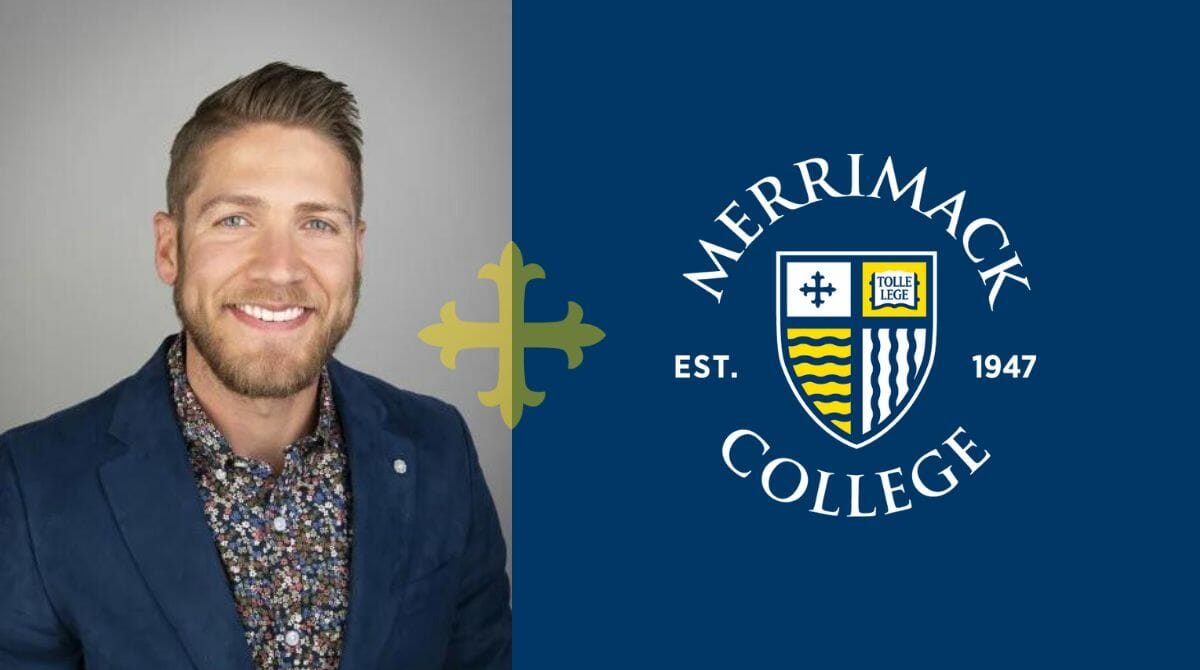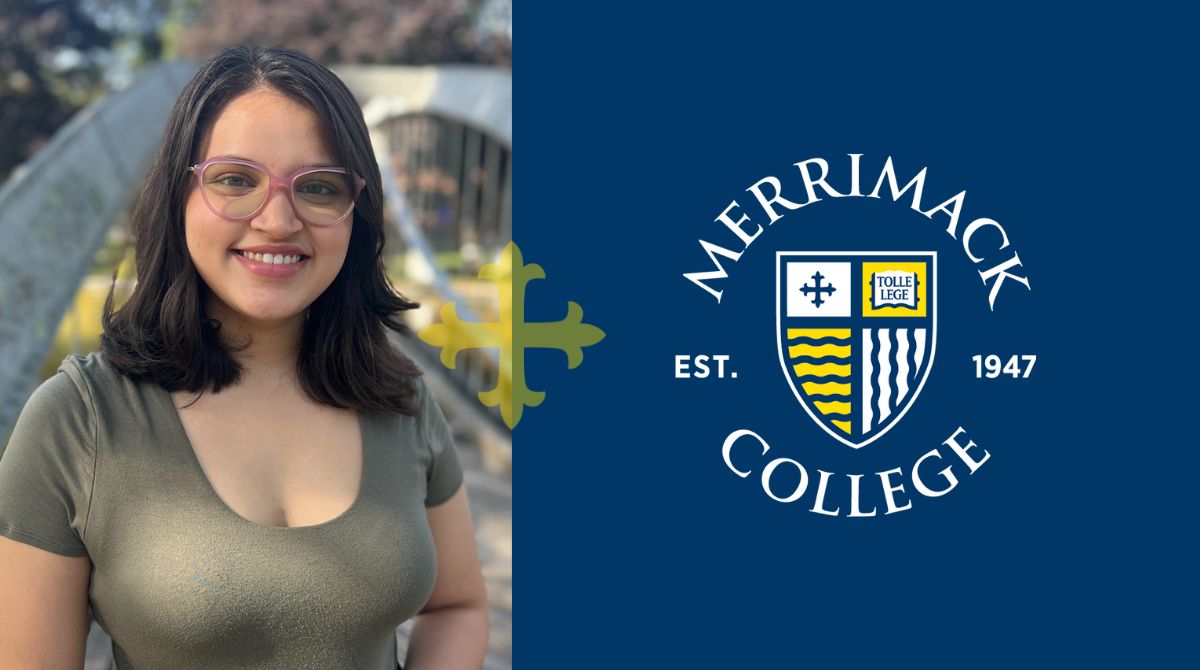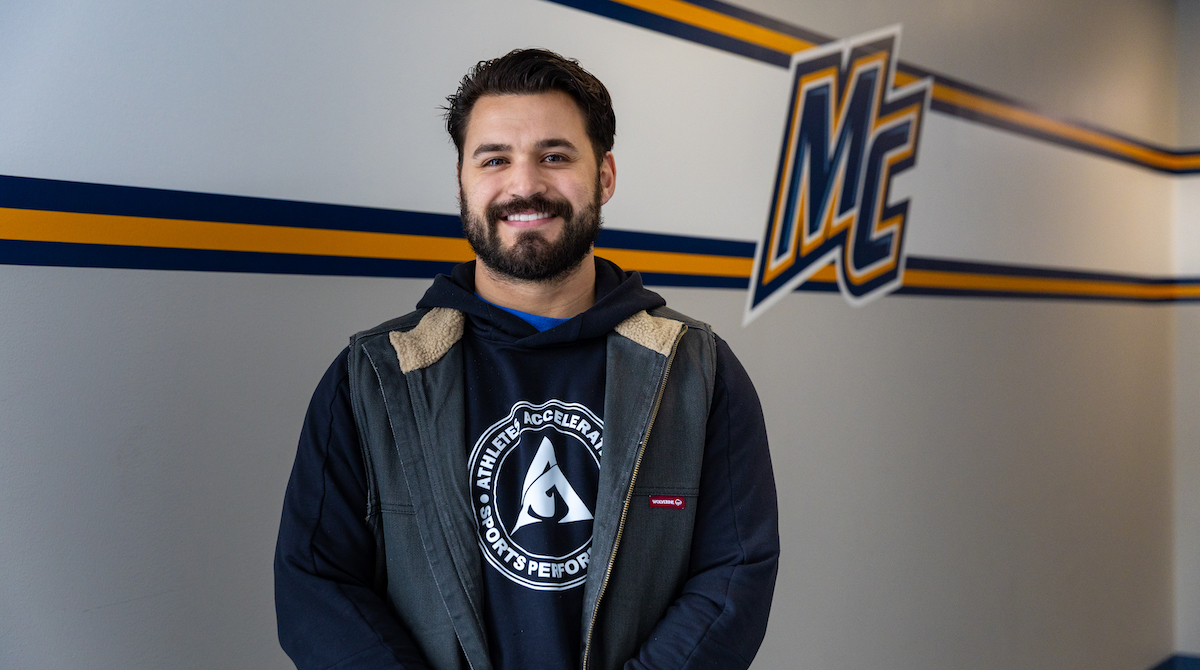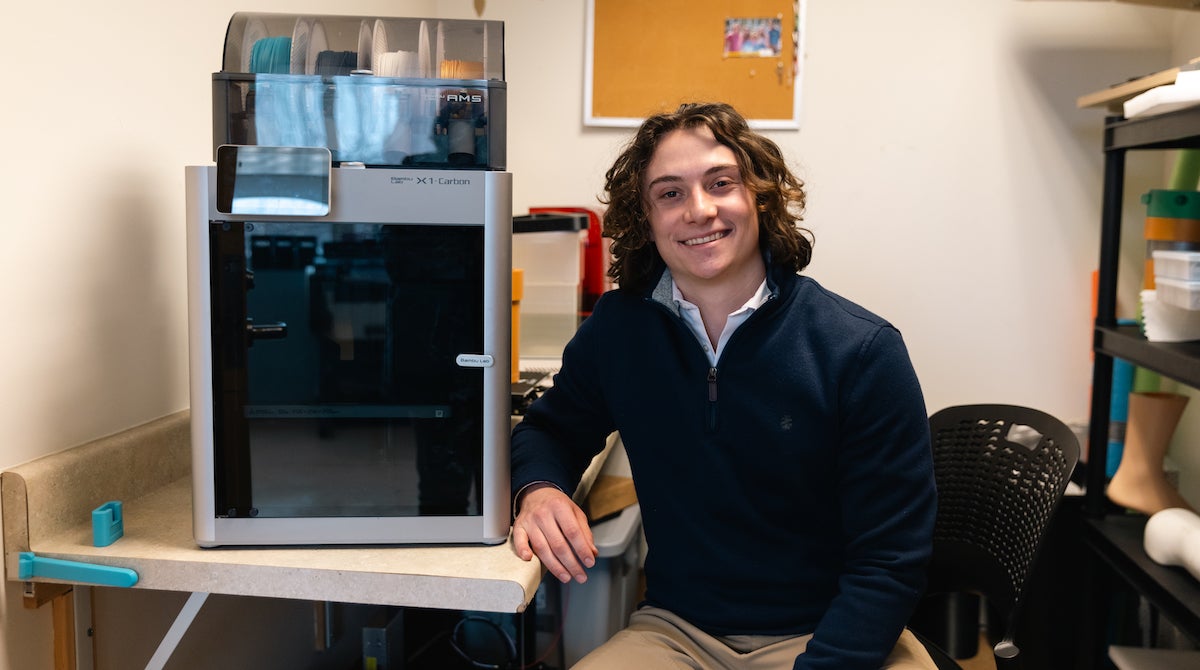The food selections at the 2018 NCAA Final Four in San Antonio, Texas, inspired Merrimack College Assistant Professor Aaron Mansfield’s current research on fandom and physical health.
As he scoured the Alamodome for something to eat, finding a healthy option proved to be difficult.
“The healthiest option was a fried chicken sandwich,” explained Mansfield, who is part of the Girard School of Business faculty. “I walked the concourse thinking, ‘This doesn’t make sense!’ The irony smacked me in the face and sparked my research.”
Since then, Mansfield has conducted five studies on how unhealthy lifestyles can flourish within sports fandom. For example, the food at stadiums and watch-at-home parties is typically unhealthy. Advertising doesn’t help matters, Mansfield added, as more often than not fans are shown commercials and billboards for beer and junk food – often promoted by athletes. There’s also the sedentary aspect of watching games for hours, and fans’ emotional attachment to their favorite teams impacts the health of their behaviors, too.
“In one of the studies that is under review that I’m working on right now, we primed fans to experience specific emotions related to their fandom, and then we were able to tease out how they made less healthy decisions when they were feeling most emotional,” Mansfield said.
Mansfield is no stranger to the sports fandom lifestyle. As a native of Buffalo, New York, he’s followed the Buffalo Bills of the NFL all his life.
“Fandom is such a powerful vehicle,” he noted. “You see how much people care about their sports teams. We also see how unhealthy the world is becoming. I want to learn how we can tap into this thing people care about so much and leverage it for good instead of seeing how it’s having negative effects on people.”
Mansfield is expanding on that work thanks in part thanks to a seed funding grant he received in December from Merrimack College’s START program. This annual program aims to incentivize and reward faculty who have new or existing research programs and want to pursue external funding to support their work.
“Health is one of the most important areas of research in the country,” said April Bowling, associate vice provost of research. “Aaron is investigating the potential to use professional sports fandom – traditionally associated with a lot of unhealthy behaviors – into a vehicle for healthier choices and a cultural shift…The START program is about moving promising researchers and their scholarship along the pipeline from idea to external funding of large studies; our funding of Aaron’s work is intended to do just that.”
Mansfield is using the START grant to research differences between fandom and health outcomes in the U.S. and England, where soccer fandom is a significant part of life and culture. He is working on this and other related projects with his research partners: Yuhei Inoue from Manchester Metropolitan University and Yonghwan Chan of the University of Florida. Mansfield and his collaborators are expecting more publications soon, on topics including sports sponsorship and how contextual variables impact fans’ nutrition and exercise behaviors
“We’re collecting data right now,” Mansfield said of the START-funded project. “It’s going to be so interesting because (similar studies) have been quite limited in their scope. We’re presenting this at a conference in May, so we’ll have the preliminary research done by (then).”





